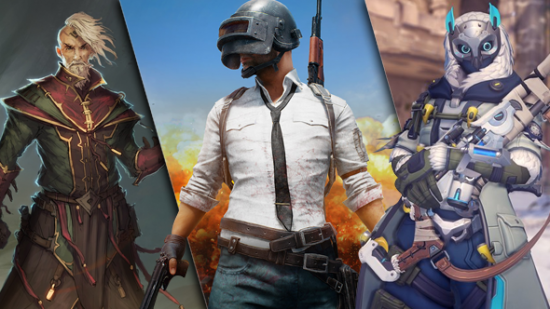Well, that went fast, didn’t it? 2017 has shot by like a hooded assassin scarpering over a pyramid, disappearing into the horizon, forgotten as quickly as Agents of Mayhem was. Part of the reason it has gone so fast, however, is because of videogames. Lots and lots of good videogames. Videogames spilling out of the walls, onto our faces, suffocating us all in interactive goodness.
This year was great and everything, but what were the best games of 2016?
As it was such a busy year, you would be forgiven for not playing every major release. Luckily, between the lot of us here at PCGN Towers, we have played pretty much all of them. As such, we brewed up a /lot/ of coffee and launched into a series of heated arguments in order to honour the standout games of the past 12 months.
So, without further ado, we present to you the PCGN Awards 2017:
Game of the year
PlayerUnknown’s Battlegrounds
.jpg)
We can stop having the ‘is an Early Access game eligible for game of the year?’ debate because PUBG is officially feature complete and out on PC. Although, frankly, we would have named it game of the year regardless, as no game this year has been able to equal it for industry impact. 26 million players in nine months, countless copycats – you will struggle to find a PC player who has not either bought PUBG, or at least spent a few hours watching other people embroiled in life and death struggles on Twitch.
It all comes down to its guise of simplicity: 100 players enter and the winner is the last one left standing. PlayerUnknown’s Battlegrounds is the purest incarnation of the ‘death games’ premise that has been knocking about popular culture and even the real world since the 1924 Richard Connell short story, The Most Dangerous Game. Survival is all that matters and all your progress, every weapon and item you scavenge, can be torn from you in a split-second, whether that is from a sniper’s bullet or a careening vehicle.
Death can come from anywhere in PUBG: just over the horizon; hidden behind any one of the 100 trees in your sightline, stalking you from behind. You can never guarantee your safety and the constant need to find better gear and move towards the map’s constantly shrinking safe zone means you are always having to take risks and make critical decisions. That tension ramps up with each newly shrunk play zone, spiking every time you hear an engine in the distance, spot another soul parachuting towards the same spot as you, or when you have to sprint across open ground.
If you can make it to the final few players then it is nerve and guile that determines who wins. And when you do finally claim your first chicken dinner, expect an adrenaline rush that surpasses the thrill of slaying a Dark Souls boss, or even clutching out a round of Rainbow Six Siege. It is not overstating it to say that PlayerUnknown’s Battlegrounds is the most exciting game of 2017.
Runner-up
Divinity: Original Sin 2
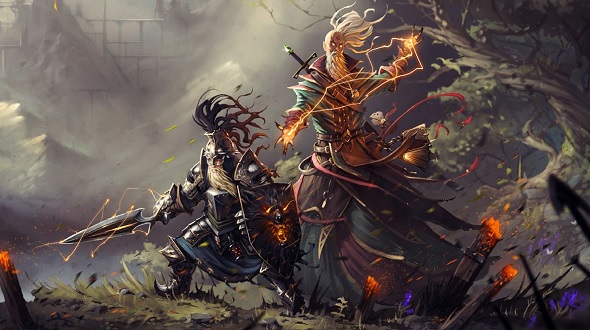
Our game of the year’s popularity can partially be explained by its simplicity. Our runner-up, on the other hand, is all about complexity. Divinity: Original Sin 2 is so complex, in fact, that often it feels like it is capable of bending to your every whim. An RPG built more on sandbox creativity than strict statistics and narrative threads, it truly rewards the curious player – especially the one curious about what will happen when you combine poison with an open flame.
Divinity would be more than worth this runner-up award for its dense and lengthy story alone, but the game is much more than a classically-styled RPG. The campaign comes bundled with a game master mode that allows you to create and run your own adventures, played out akin to a Dungeons & Dragons session with added computer effects. And then there is the PvP arena which, remarkably, is far from the forgettable tacked-on mode that it could have been.
Divinity: Original Sin 2 only needed to be a great nostalgia-fuelled RPG. Instead, it is a trio of best-in-class modes that look more to the future than they do to the past, easily cementing its place as the most ambitious RPG of the decade.
Indie game of the year
What Remains of Edith Finch
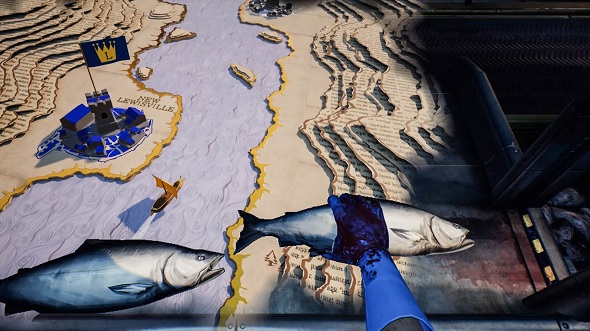
The term ‘walking simulator’ was coined to describe the likes of Dear Esther and Gone Home, in a pejorative sense. What Remains of Edith Finch proudly embraces and transforms it into not only one of the masterpieces of 2017, but one of the best PC games ever.
As the eponymous Edith, you are part of “America’s most unfortunate family,” the Finches. The family believes that they are the victims of an enigmatic curse, and it seems to be true, with each Finch meeting an early death, one by one. Uncovering how each of your relatives lost their lives as you return to the family abode triggers a series of moving vignettes, which playfully experiment with the blurring of storytelling and interaction.
Always inventive – and often emotive enough to gut punch you – these playable short stories are too astonishing to spoil. Honestly, we have been crying each time we opened a can of salmon all year. Just play it: in three hours, What Remains of Edith Finch packs in more of note than many games achieve with hundreds.
Honorable mention: Hellblade: Senua’s Sacrifice
Ongoing game of the year
Overwatch
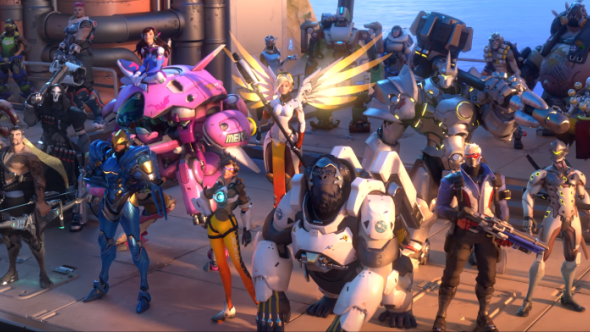
2016 very much belonged to Overwatch, but Blizzard certainly pulled out the stops to ensure their shooter’s multi-million strong playerbase kept pushing the payload for another year. The limited-time-event structure returned in 2017, bolstered by stronger ideas and cosmetics that seemed painstakingly designed to send forums into a fan frenzy.
From the broken but incredibly moreish Capture the Rooster to the surprisingly mobile PvE design of Uprising, Blizzard really toyed with what we could expect from Overwatch. The box was shook up even further with new heroes that forced us to step back and reevaluate what the game was, with Doomfist demonstrating the shooter could even do Street Fighter-influenced brawling.
All this came during a year when Blizzard tirelessly tweaked and adjusted the game’s DNA. Bugs were fixed, new ones appeared, and the meta slowly evolved into new guises. There is still a way to go – the team really needs to address the rampant toxicity at play – but it is already clear that 2018 has the potential for Overwatch to deliver even more.
Honorable mention:Rainbow Six Siege
Best DLC
XCOM 2: War of the Chosen
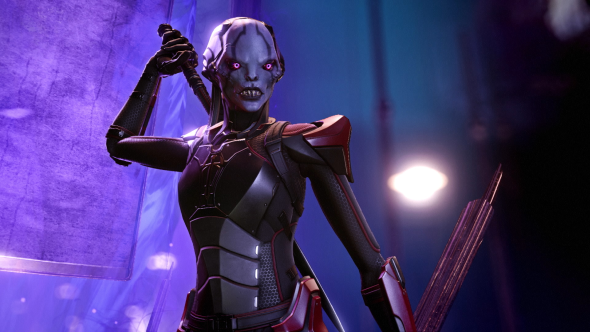
Perhaps XCOM 2: War of the Chosen is the finest example of DLC this year because it nearly wasn’t.
Nearly wasn’t DLC, that is – this expansion became so ambitious that Firaxis considered slapping the title ‘XCOM 3’ on it and, presumably, taking the next couple of years off.
The fact that it forms part of XCOM 2 is what makes War of the Chosen so fascinating, though. While its parent game made the series more callous and utilitarian than ever before – casting you as a guerilla general whose equipment is more valuable than their people – the DLC breathed new warmth into the formula. Now soldiers could bond, becoming more efficient as they tuned into each other’s quirks and nuances. And on the campaign map, XCOM had more character than ever before, winding up positively chatty thanks to a roster of hammy villains.
As always, though, there was a nasty twist. Once War of the Chosen wraps you in cozy camaraderie and cheesy writing, it constricts like one of XCOM 2’s Vipers – stopping your heart with one of those terrible battlefield losses. Thought it was awful to lose your crack sniper in Enemy Unknown? Try the same again but with a best bud left behind.
Honorable mention:Dark Souls 3: The Ringed City
Back from the dead award
Resident Evil 7
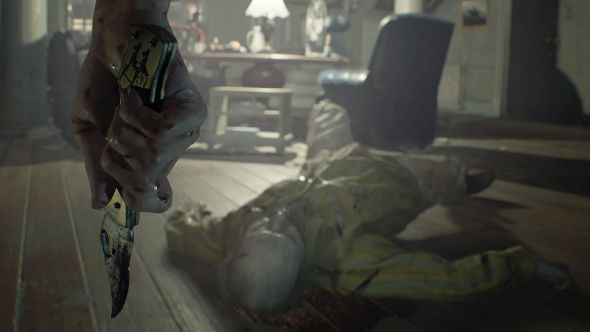
Capcom ran out of ideas with Resident Evil 6. Their solution was to pinpoint the popular bits of past games and simply mash them all into one super package, across four separate campaigns: some co-op, some stealth, some action, a dash of melee, and a bit of survival horror. Why not, eh? The result was a game that lacks an identity, a game that tries too much and, ultimately, a game that’s as forgettable as Resident Evil’s light gun spin-offs.
Fortunately, Resident Evil 7 proves Capcom are not out of ideas after all. In fact, the Japanese studio are necromancers. That itchy, tasty corpse of a series seemed like it was being left to rot, but Resident Evil 7 brought it back to life with a fresh, first-person viewpoint, a mysterious setting, and a vulnerable protagonist who doesn’t have biceps like Christmas ham.
Despite all of these changes, the most impressive thing about Resident Evil 7 is how it retains that Resi identity, with dwindling ammo, resource management, and an intricate location that you become intimately familiar with as you play, its secret doors opening with hilariously convoluted mechanisms – what’s that, love? You want me to pop out for some milk? Just gotta get the bird statue and line up this shadow puppet. Cheers.
Honorable mention:Call of Duty: WWII
Triple-A studio who seemed the most human
MachineGames
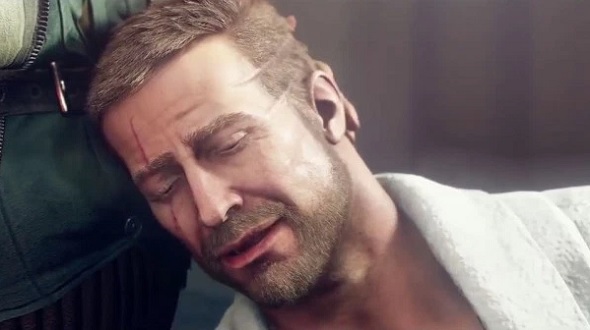
MachineGames take a competitive category this year for two big wins – Jens Matthies vaping his way through E3, and the best marketing campaign of 2017.
Here’s Matthies on the GiantBomb couch at E3 explaining the utterly ridiculous thing they have built while epitomising that most relatable of states – being slightly tired. Jerk Gustafsson’s famous ‘there are a lot of things you can do with a hatchet and a Nazi’ should go down in history. They, and the rest of the team, were soft spoken and reasonable in all their interviews, all while selling the most violent game of the year.
Surrounding that was a marketing and social media campaign that really didn’t pull any punches about Nazis, both real and figurative, being the bad guys. Literally. Repeatedly. Without apology. And even once the game was out, Bethesda made it clear they considered it the correct decision.
MachineGames get this award because they not only didn’t mind having a political message in their game, but they – and their publisher – stood by it.
Honorable mention:Creative Assembly
Biggest surprise of the year
Nier: Automata
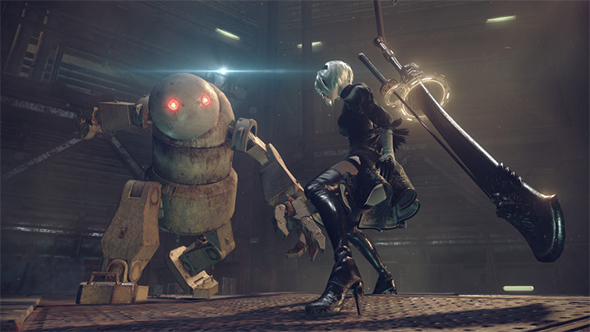
This is the third time we’re writing a short summary of why Nier: Automata is brilliant for our end of year round-ups and we are getting quite efficient at it. You’ll have to wait for Ben’s personal pick for a list of all the ways it’s great, from story to gameplay to art to sound, but perhaps the most notable thing is it was a total surprise.
In a year of big-budget sequels, slow-build Early Access success stories, and a raft of indie darlings, not a lot of people were building the hype for that new Yoko Taro game with the dodgy demo. The Japanese die-hard had their eyes on it – the only people who ever managed to struggle through Taro’s flawed Drakengards – and Platinum always drags some attention, but nobody saw the final version coming.
A game that won’t let you save for an hour, sold on a blind android’s identical-robot-killing adventures, and no small amount of titillation, just so happened to be one of the most inventive and popular releases of the year, finding a fanbase (and sales) far beyond what was predicted. There’s going to be more, and Yoko Taro has a many more fans for life.
Honorable mention:Fortnite Battle Royale
The ‘Oh yeah, that was this year!’ award
Warhammer 40,000: Dawn of War 3
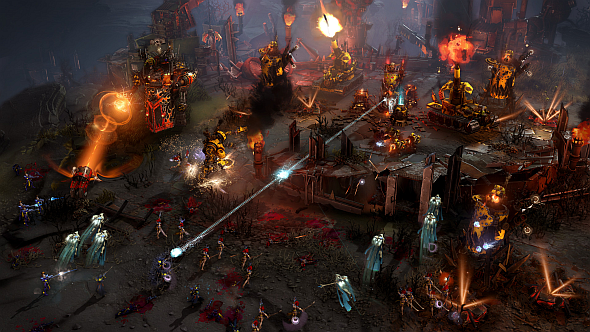
It is a hard fought battle for our least prestigious award of the year, but Dawn of War 3 scrapes it. The big hope for RTS this year disappeared faster than a Guardsman down an Ork’s throat.
There were two big downfalls for Dawn of War 3 – it never got the community onside, and then did nothing exceptional, even if it never made huge mistakes. It was, simply, a little dull, and that left it languishing – not a crime against humanity, but unlikely to be remembered in the annals of history.
Embroiled in fan debate as to whether the lascannons were right from its very announcement, the 40k community never latched onto it for lore reasons, and the Dawn of War community is already split between fans of the first game and the vastly different second. DOW3 took a bit of both, impressing nobody, and had problems selling its primary, objective-based game mode which, while nothing like a MOBA, was accused of being like a MOBA.
It also launched with a campaign that didn’t autosave, a currency-based multiplayer unlock system that nobody wanted to get involved with, and entered an unpopular genre during a competitive month and in an extremely good year. Doomed, basically, and all the post-launch updates in the world haven’t stopped it being about as popular as its nine-year-old originator.
Honorable mention:Ghost Recon Wildlands
Collapsing star
Mass Effect: Andromeda
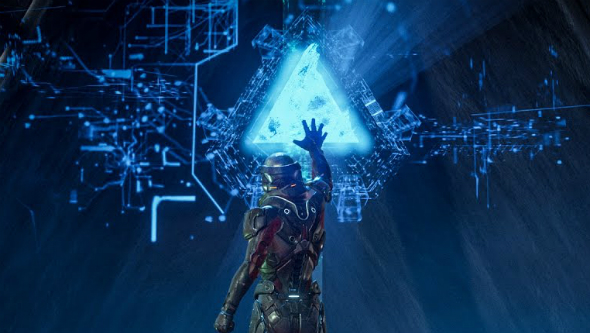
Mass Effect: Andromeda’s main problem was expectation. People already had an idea in their heads of what a Mass Effect game is, and what a Mass Effect game should be. Andromeda wasn’t it.
On BioWare’s side, they had the challenge of relaunching the series in a world that had ended, literally. That meant moving to a new galaxy entirely, introducing a new cast of characters, new worlds, new races, and new gameplay systems. All of this while working in a game engine the studio had never used before – a game engine that’s more suited to tight FPS campaigns than sprawling RPG epics.
Taken on its own, as the starting point for a new trilogy, Andromeda was a strong base to build from – much stronger than the first Mass Effect game, at least. I still like to imagine an Andromeda 2 with the same jump in quality that we saw between the first Mass Effect game and its sequel, but that dream is dead.
Before Andromeda even launched, people wanted it to die. The conversation was focused around the – admittedly wonky – facial animations, but hardly anyone gave it credit for the things it did well: the much-improved combat, the sense of exploration, its alien beauty. Now, like the galaxy it left behind, it seems the RPG series that once shined so bright has been left to expire.
Honorable mention:Destiny 2
Lazy Dark Souls comparison award
Cuphead
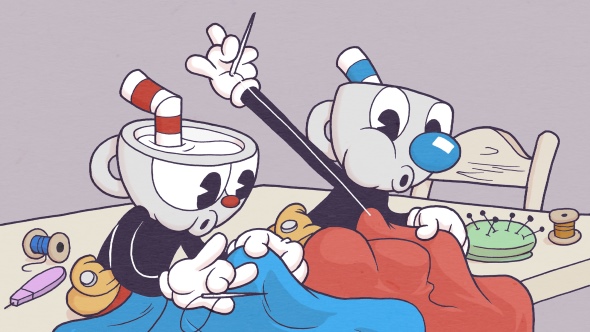
Dark Souls is the Dark Souls of videogame comparisons. Choosing to deploy it as a simile, metaphor, or any other such descriptive crutch will usually result in a swift parry from life that results in your reputation being battered and bruised – y’know, like fighting a Dark Souls boss.
The damage will be even more severe if you take your shot without thinking it through first. Take, for example, Cuphead. It is nothing like Dark Souls. Not even a little bit. But you would be forgiven for thinking otherwise after reading any random selection of reviews and think pieces about it.
Sure – Cuphead is a difficult game. But it is also absent of any Souls, is pretty well lit for the most part, and is rarely enjoyable. See? They are not alike.
Other things that aren’t like Souls include doing your tax return, deseeding pomegranates, eating a whole lobster, and reaching the credits of an Adam Sandler film. All difficult, sure, but profoundly different to Dark Souls. Don’t get us wrong, there are things that are like Dark Souls – Dark Souls 2, and Dark Souls 3, for example – but Cuphead is not one of them.
Honorable mention:Hellblade
He’s Dead, Jim award
Star Wars Battlefront II
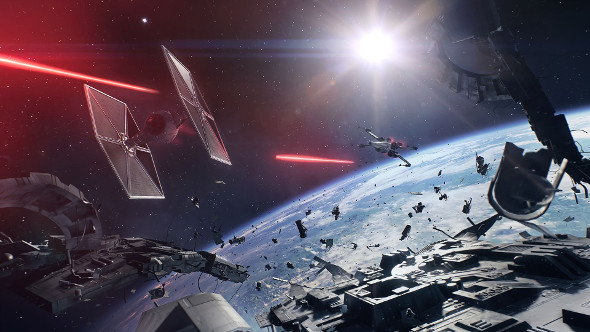
Star Wars Battlefront II made the news back in November for all the wrong reasons. Rather than talking about its qualities as a big team shooter, all the attention was on its loot boxes. Soon after players got their hands on the game, it was discovered you would have to play for more than 4,500 hours to earn enough in-game cash to get the 3,000 loot crates needed to unlock everything in the game. To speed up the process you had to spend real money to buy in-game currency. Enter internet backlash.
EA tried to fix the problem, reducing the grind, before taking out microtransactions completely. But not before they got a call from Disney and multiple governments around the globe who had decided to launch inquiries into whether loot boxes constitute gambling. While EA plan to reintroduce microtransactions in the future – which may or may not be as cosmetics – it is hard to see Star Wars Battlefront II ever coming back from this. I’m sorry to say, he’s dead, Jim.
Those are our picks from 2017, but we would very much like to hear yours as well. Let us know in the comments below.
